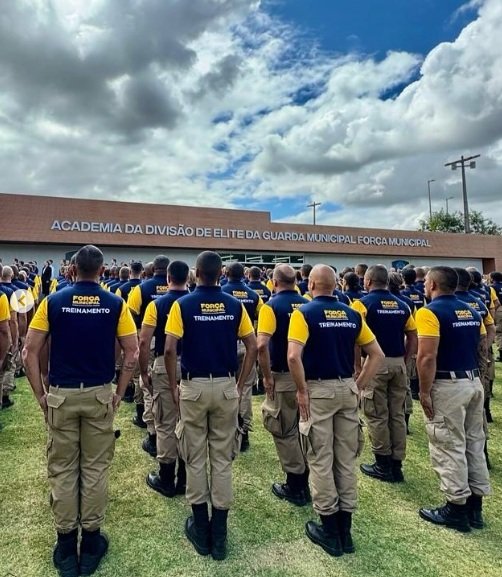Training for the first class of Municipal Force agents, the armed division of the Rio Municipal Guard, officially began on Monday (01/09) at the Federal Highway Police (PRF) headquarters in Vigário Geral, in Rio’s North Zone. The agents are expected to complete their training and be deployed to the streets by January 2026. On Tuesday (02/09), an inauguration ceremony marked the launch of the program, attended by Mayor Eduardo Paes (PSD), Minister of Justice and Public Security Ricardo Lewandowski, Deputy Mayor Eduardo Cavaliere, and the Director-General of the Municipal Force, Brenno Carnevale. Their presence emphasized the political importance attributed to this initiative, seen as a major step in strengthening the city’s local security framework.
This Content Is Only For Subscribers
To unlock this content, subscribe to INTERLIRA Reports.
Vacancies Remain
Despite the government’s expectations, not all available positions were filled. Of the 330 openings announced, 48 remained vacant, leaving 282 agents to begin training—a shortfall of 14.5%. Rio’s City Hall has set a broader goal of training 660 officers by the end of 2025. However, the current number of unfilled positions raises doubts about whether this target will be achieved. In the long term, the municipal administration plans to expand the Municipal Force to 4,200 officers by 2028. Of these, 1,200 will be recruited from within the existing Municipal Guard, while the rest will be hired for temporary posts with contracts lasting up to six years.
Focus on Prevention
According to Brenno Carnevale, head of the Municipal Police Force and former Secretary of Public Order, the expectation is that the newly trained officers will already be deployed by Carnival 2026. The first areas of deployment will likely include Rio’s downtown and the South Zone, regions that experience high levels of street thefts and robberies. Carnevale stressed that the new force will not take on the role of confronting heavily armed organized crime groups or reclaiming territories dominated by factions, which remain responsibilities of state and federal forces. Instead, the Municipal Police Force will dedicate its efforts to preventive policing, reducing the daily risks faced by residents and tourists in defined urban centers.
Analysis:
The creation of the Municipal Force represents a significant shift in Rio de Janeiro’s approach to public security, aiming to strengthen local capacity to address everyday urban crime without directly overlapping with state and federal responsibilities. By focusing on prevention and visibility in areas such as downtown and the South Zone, the initiative seeks to mitigate the persistent problems of theft and robbery that most directly affect residents, commuters, and tourists. The strategy acknowledges the limits of municipal action in confronting heavily armed criminal organizations, while simultaneously filling a gap in routine policing where a more specialized presence could reduce opportunities for street-level crime.
However, the recruitment shortfall and questions regarding transparency in the selection process reveal underlying challenges that may hinder the program’s credibility and scalability. Achieving the ambitious goal of expanding the force to 4,200 agents by 2028 will require not only effective training and retention but also clear communication about recruitment policies to maintain public trust.




